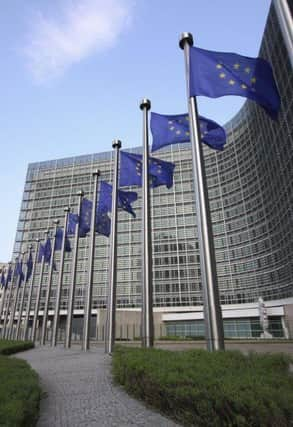European Commission update


The UK previously stated that they would not be nominating a candidate as it was planned that Brexit would have taken place and the UK would have left the EU before the new Commission took office.
However, given the Brexit delay until 31st January, the UK now has a legal obligation to name a Commissioner-designate.
Advertisement
Advertisement
This nominated candidate was expected to be announced on 12th November, though it is understood that von der Leyen’s executive can legally take power without a UK representative, provided she has at least asked for a name.
Hungary, Romania and France, have now submitted their Commissioner-designates and hearings were due to be held on 14th November.
If the candidates are accepted by their respective Parliamentary committees, the committee chairs will analyse the outcome of all the hearings on 19th November.
A positive outcome from this would mean the hearing season could be declared closed, and a vote will be held on the whole College of Commissioners in the plenary session on 27th November.
Advertisement
Advertisement
However, given this tight schedule, any delays in this process could mean that von der Leyen’s Commission will be postponed by a month and will not start until 1st January.
EU – Singapore trade deal
Last week EU Finance Ministers signed off the trade deal between the EU and Singapore, meaning it can now enter into force on 21st November.
As part of the agreement, Singapore will remove all remaining tariffs on EU products and will recognise the 138 products covered by the EU’s Geographical Indications (GI) scheme.
Conversely, on day one of the agreement the EU will remove 80% of import tariffs and has committed to removing the remaining 20% over the next three to five years.
Advertisement
Advertisement
The main UK agri-food exports to Singapore include cheese, pork and whisky.
Publication of study: Megatrends in the agri-food sector
Following changes in the global agri-food sector in recent years, the European Parliament’s Agriculture and Rural Development Committee requested a study that would provide an overview of all major trends affecting the food chain; highlight the main future challenges of European agricultural systems; and outline possible scenarios and pathways that could help define agricultural policy priorities at European level.
The research for this investigation was carried out from July 2019 to September 2019 and the final document, Megatrends in the agri-food sector: global overview and possible policy response from the EU perspective, has now been published. Key findings from this report show a 50 per cent increase in food production will be needed by 2050 to feed a predicted additional 2.3 billion people.
Additionally, whilst hunger globally has been reducing, over 820 million people still have insufficient food and diets in the middle and high-income countries are gradually becoming unhealthier, increasing the burden of obesity and diet-related diseases.
Advertisement
Advertisement
With food production as the largest cause of global environmental change, meeting the increases in food demand whilst ensuring sustainability and addressing health issues will be a challenge requiring an innovative and collaborative approach.
The report discusses four contrasting scenarios that could shape the future of the agri-food system, based on the above-mentioned drivers, including business as usual, mass production, abandoning global free trade and a focus on sustainable food and agricultural systems.